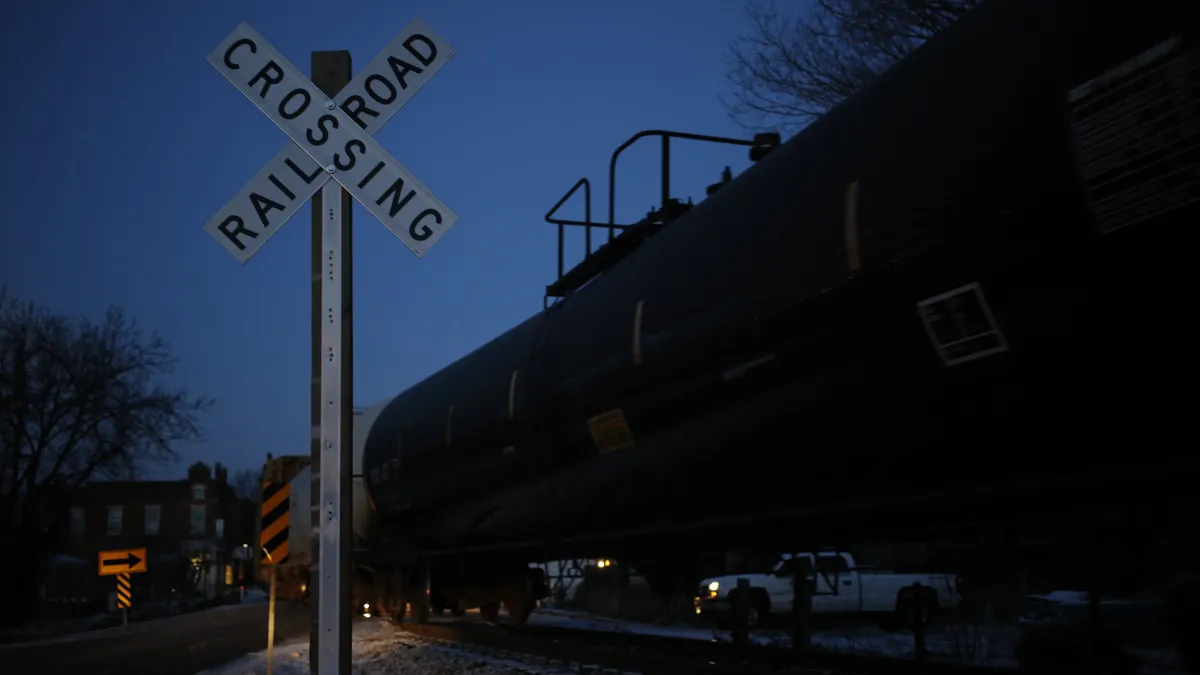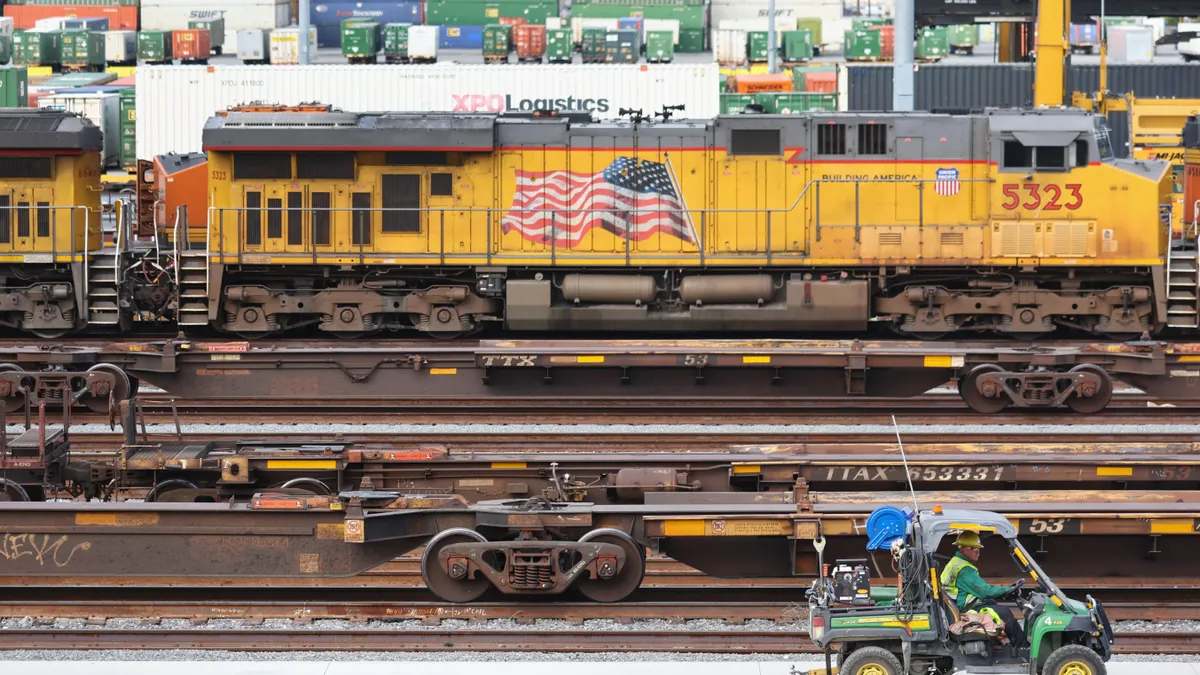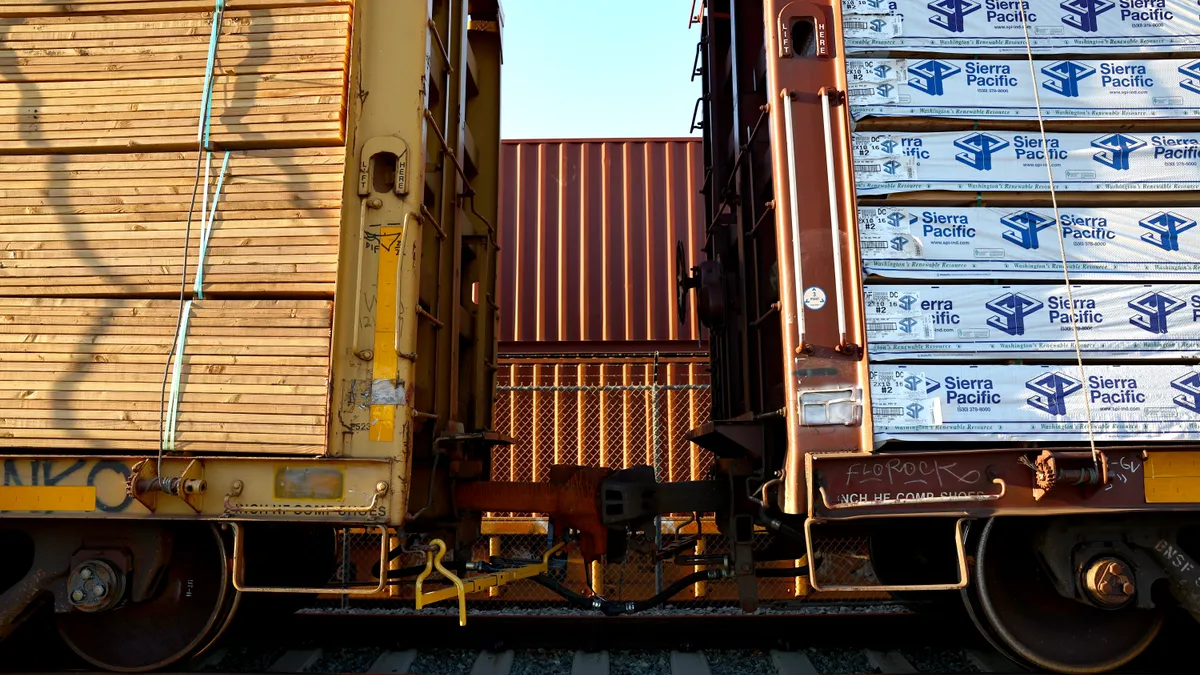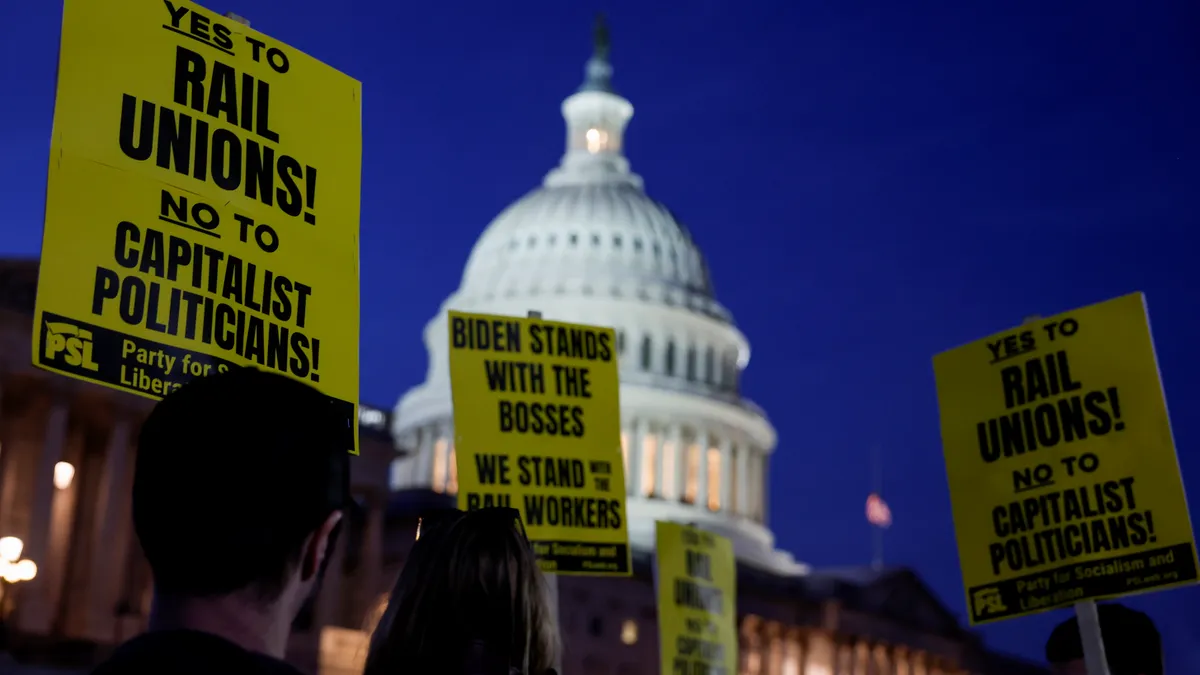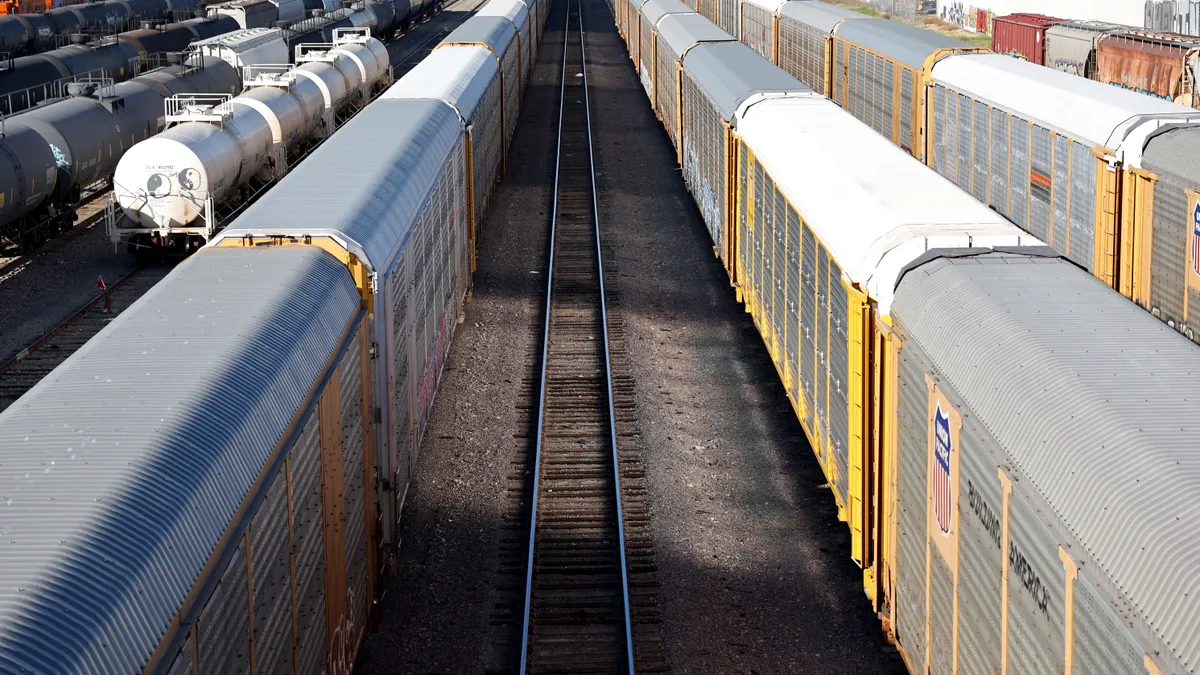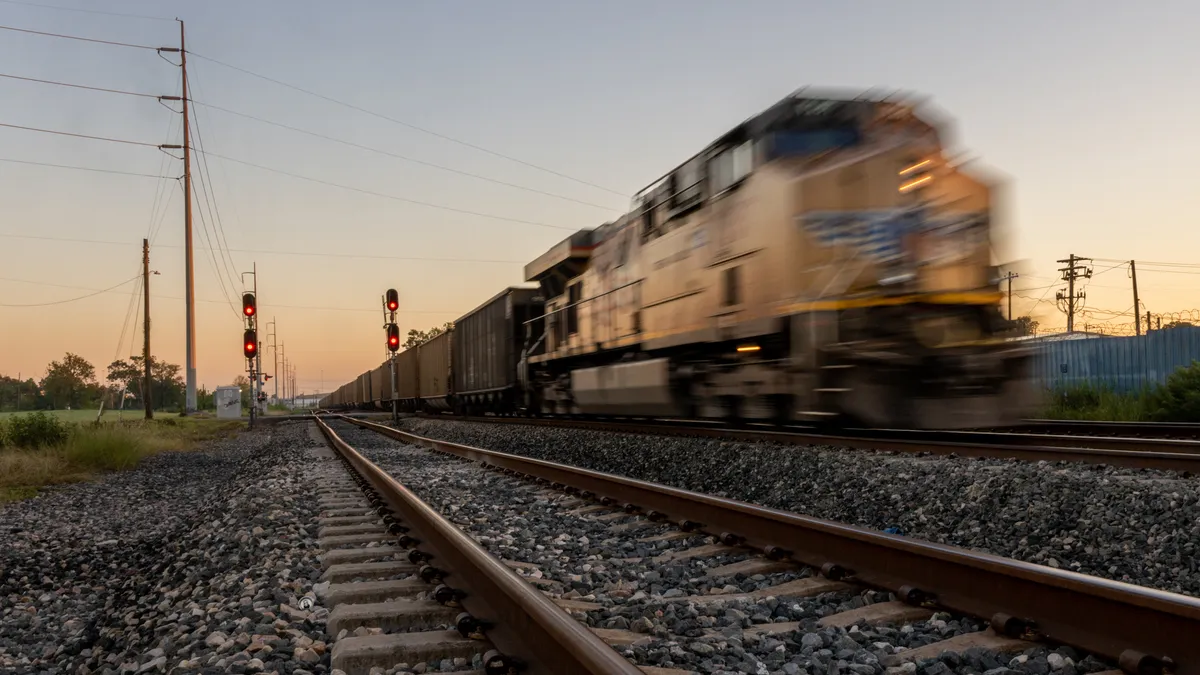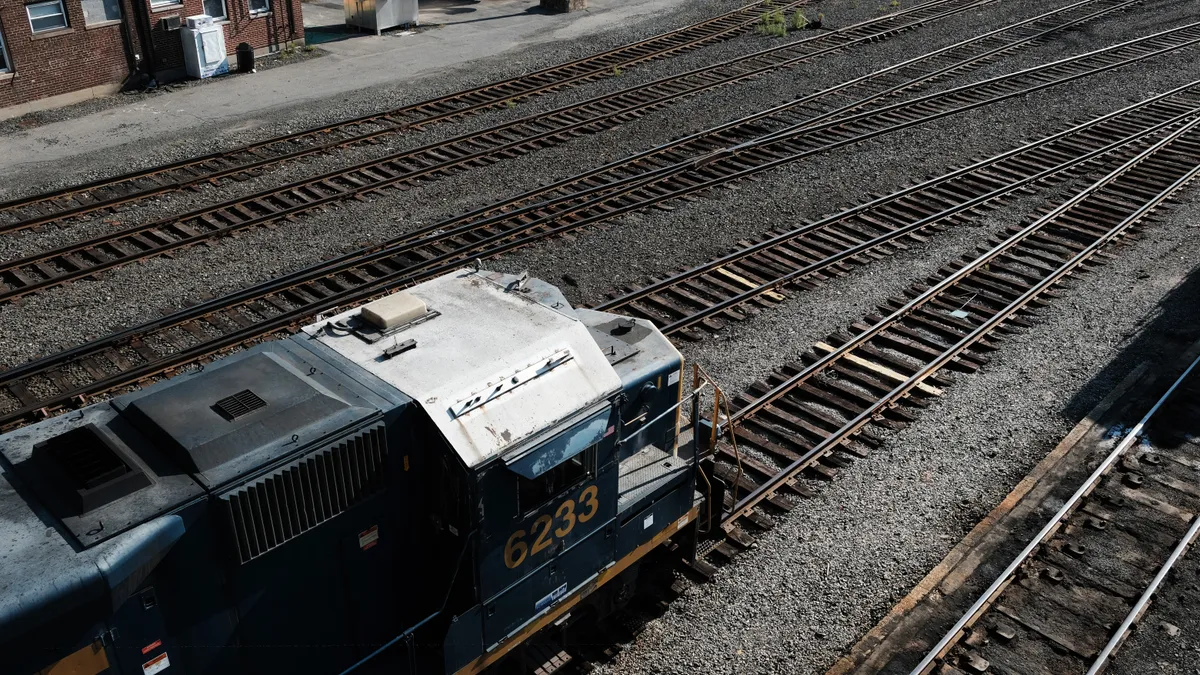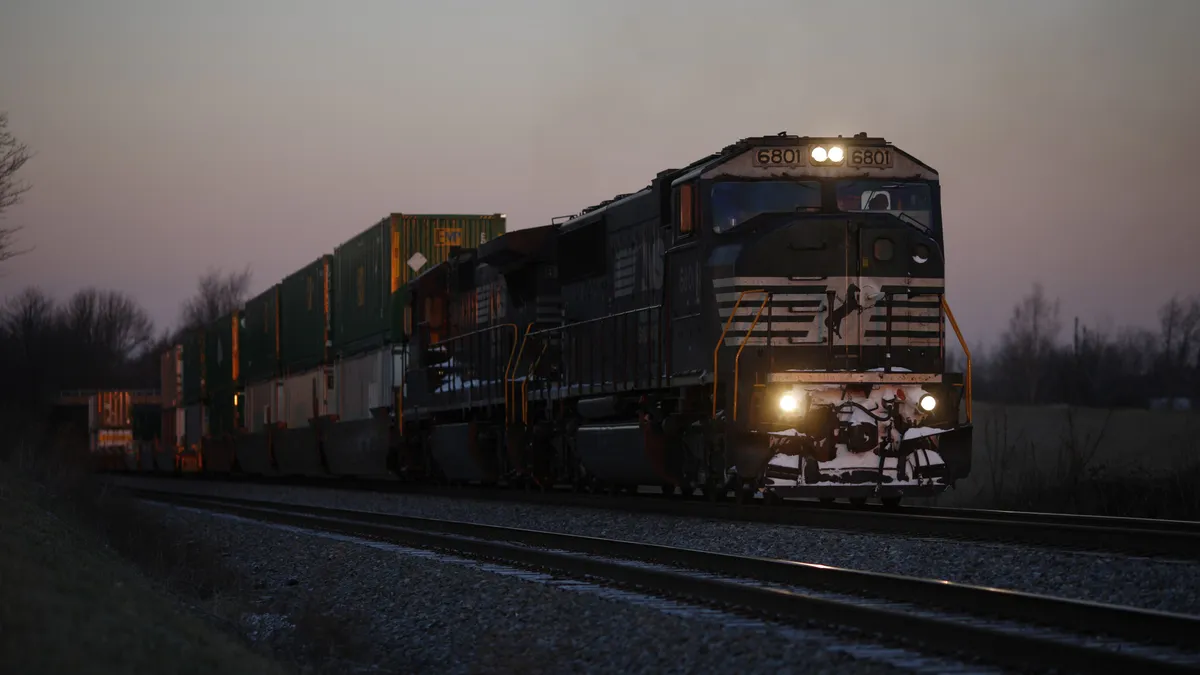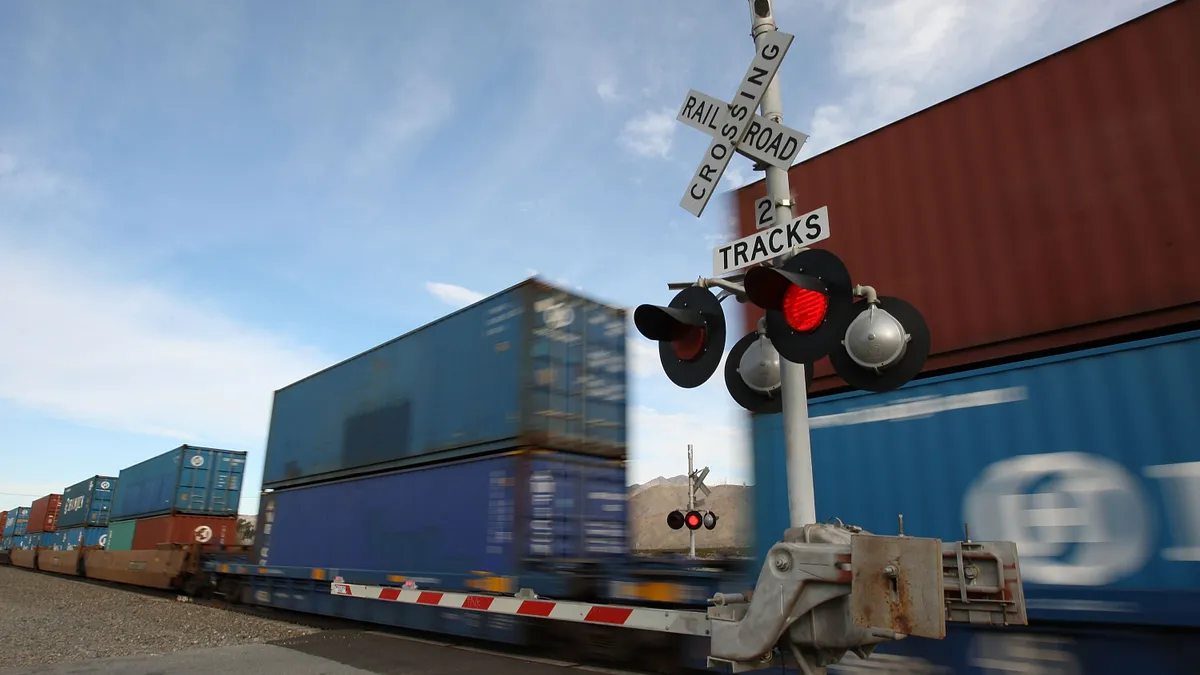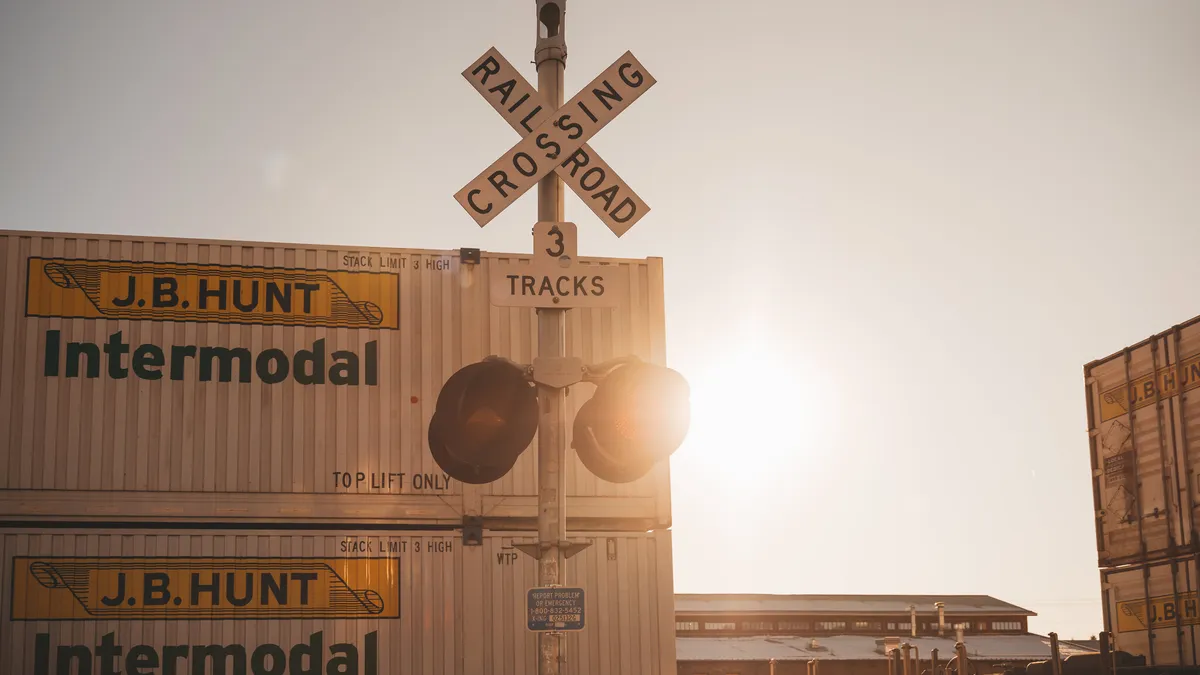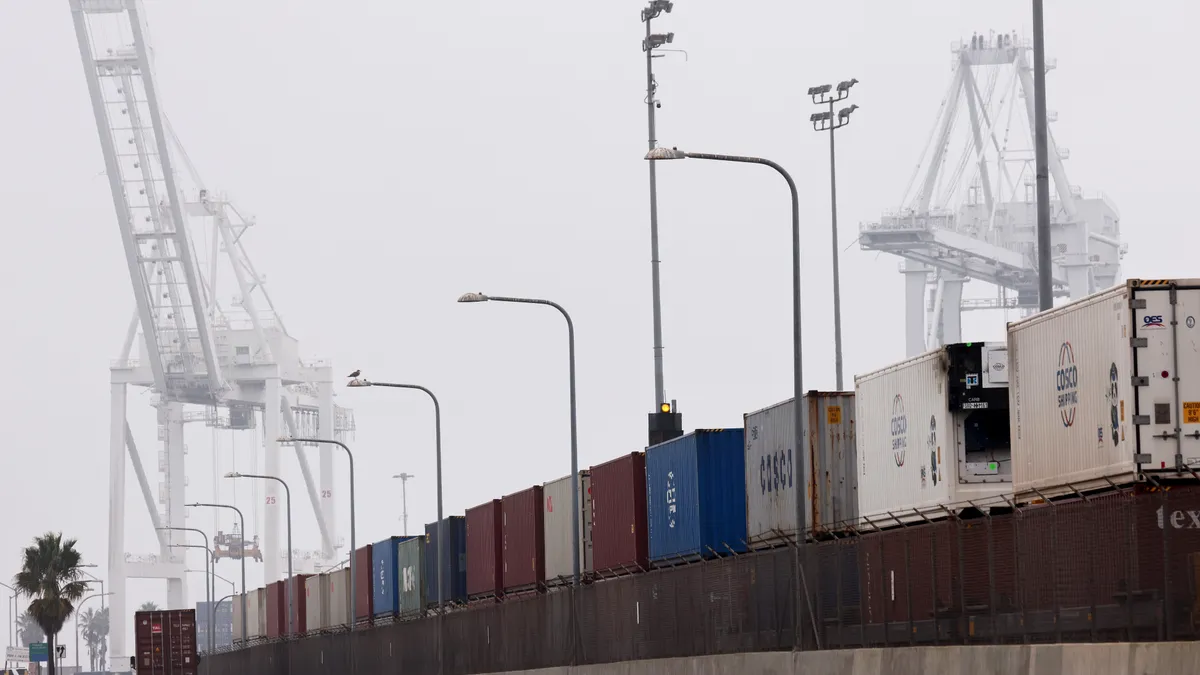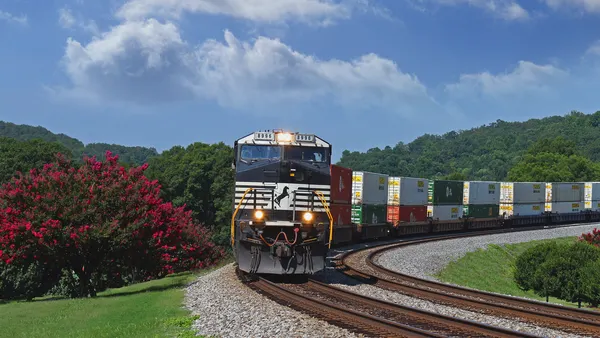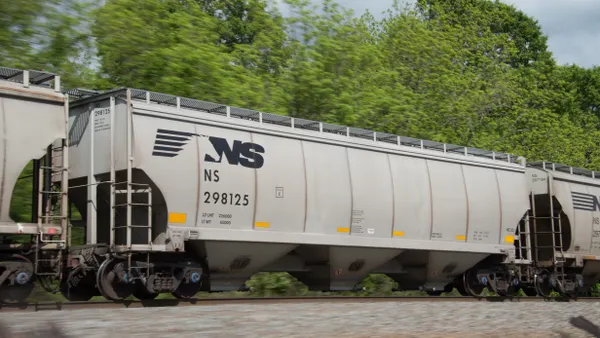Dive Brief:
- A union representing more than 6,000 workers who install and maintain signal systems voted on Wednesday to reject its contract agreement with railroads, as tensions over paid sick leave escalate and threaten a shutdown of the nation’s freight rail system.
- Just over 60% of Brotherhood of Railroad Signalmen members who submitted ballots voted to reject their contract, President Michael Baldwin said in a statement. Voter turnout was the highest in the union’s history.
- The union has agreed to maintain a “status quo” period until early December and will work to reengage railroads in negotiations. No service disruptions are imminent, according to the National Carriers’ Conference Committee, which represents railroads in bargaining.
Dive Insight:
The Brotherhood of Railroad Signalmen vote marks the second time a rail union is rejecting its contract over paid sick leave, reigniting fears of a strike that could hamstring a major portion of the nation’s freight shipments.
Even the prospect of a strike can create shipping disruptions, as shippers scramble to manage risk by securing transportation alternatives. Norfolk Southern Chief Marketing Officer Claude Elkins said on an earnings call Wednesday that the possibility of a rail strike in September accounted for up to $25 million in lost revenue, largely in intermodal markets.
The Brotherhood of Railroad Signalmen voted against its contract despite some hard-won victories, including a 24% compounded wage increase upon ratification and other pay provisions that the union said it’s been fighting for since 2011.
“BRS members spoke loudly and clearly that their contributions are worth more, particularly when it comes to a basic right of being able to take time off for illness or to prevent illness,” the union said in its statement.
The union will now reengage carriers in bargaining, though the NCCC has already indicated that it will not provide additional benefits around sick time. Railroads argue that unions should respect the recommendations set forth by the Biden administration’s presidential emergency board, which rejected the demands for paid sick leave.
“The PEB’s recommendations were crafted by a panel of experts, and they represent a carefully considered compromise of all parties’ interests,” the NCCC said in its statement responding to the BRS vote. “They remain the framework for agreements with BRS and all other labor organizations in national bargaining.”
Railroads say that workers receive three weeks paid vacation on average, and can receive partial pay for up to 26 weeks under the Railroad Unemployment Insurance Act when they fall ill. They also argue that unions traded away paid sick leave days in previous bargaining rounds in favor of supplemental sickness benefits, which increase the rate of pay starting after four days of illness.
The Brotherhood of Maintenance of Way Employes Division of the International Brotherhood of Teamsters had asked railroads for seven days paid sick leave following the rejection of its contract earlier this month. Another union, the International Association of Machinists and Aerospace Workers, rejected its contract in September in respect of other unions negotiating for additional benefits, though eventually voted to ratify.
Peter Kennedy, BMWED’s director of strategic coordination and research, told Supply Chain Dive in an interview earlier this week that workers want paid time off to deal with shorter-term illnesses like the flu or an ear infection.
“They need to do the right thing and provide paid sick leave all Class workers so then we can just put this round to bed,” said Kennedy. “The railroads created this mess. They need to clean it up before it gets worse as far as I'm concerned.”



